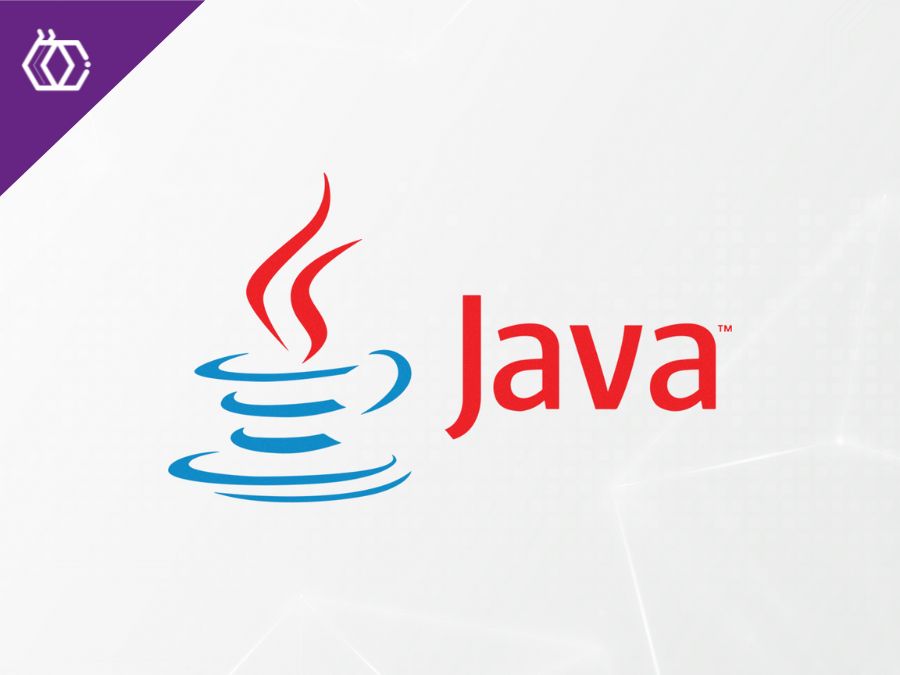

Java
(9 minutes of reading) Java is a high-level, general-purpose programming language that was originally developed by Sun Microsystems (acquired by Oracle Corporation in 2008). It is designed to be platform independent, which means that Java programs can run on any device or operating system that has a Java Virtual Machine (JVM) installed. Java is known for its "write once, run anywhere" principle, which allows developers to write code once and run it on multiple platforms without recompiling. This is achieved using the JVM, which acts as an intermediary between the Java code and the underlying hardware and operating system. It is an object-oriented language, that is, it is based on the concept of objects that represent real-world entities. It supports core features of object-oriented programming such as encapsulation, inheritance, and polymorphism. These features make Java a powerful and flexible language for building a wide variety of applications. Java has a huge set of libraries and frameworks that provide pre-built functionality for common tasks such as graphical user interfaces (GUIs), networking, database connectivity, and much more. It can be used to develop many types of applications such as desktop, web applications, mobile applications (Android development is mostly done in Java), enterprise software and large-scale distributed systems. Java is a very popular programming language due to its versatility, robustness, and wide adoption in the industry. It has a large and active community of developers, which contributes to its continuous growth and evolution. CHARACTERISTICS The main features of Java are as follows: Object-Oriented: Java is a fully object-oriented programming language. It supports encapsulation, inheritance, and polymorphism, allowing developers to create modular and reusable code. Platform Independence: The "write once, run anywhere" principle of Java is a key feature. Java programs are compiled into bytecode, which can run on any platform that has a JVM. This allows Java applications to be developed on one platform and run on multiple platforms without the need for recompilation. Memory Management: Java features automatic memory management through its built-in garbage collection mechanism. Developers don't need to manually allocate and deallocate memory as JVM takes care of memory management, freeing developers from many memories related issues like memory leaks. Robust and Secure: Java places a strong emphasis on reliability and security. It includes features such as strong type checking, exception handling, and runtime checking to ensure program stability and avoid common programming mistakes. In addition, Java's security features protect against vulnerabilities and provide a secure execution environment. Rich standard library: Java provides a vast standard library that offers a wide variety of pre-built classes and functions for various tasks. This library includes support for networking, input/output operations, graphical user interfaces (GUIs), database connectivity, and much more. It simplifies development by providing ready-to-use components. Multi-threading: Java has built-in support for concurrent programming with its multi-threading features. Developers can create and manage multiple threads in a single program, allowing efficient use of system resources and building responsive applications. Large ecosystem: Java has a thriving ecosystem with a vast developer community, extensive documentation, and numerous open-source libraries and frameworks. This ecosystem provides a wealth of resources, tools, and third-party components, making it easier for developers to build complex applications. These characteristics contribute to Java's popularity and suitability for a wide variety of applications, from small-scale programs to large enterprise systems. JAVA RESOURCES As we said earlier, Java has a rich ecosystem of resources that help developers learn and work with the language. Here we list some of the main Java resources available: Oracle Java Documentation: Oracle provides comprehensive documentation for Java, including Java SE Documentation and Java EE Documentation. These resources cover language specifications, APIs, libraries, and tools. Java Development Kit (JDK): The JDK is a software development kit that includes the tools and libraries needed to develop, debug, and run Java applications. It contains the Java compiler, the Java Virtual Machine (JVM) and various utilities. Integrated Development Environments (IDEs): IDEs are powerful tools that provide an integrated environment for Java development. Popular Java IDEs include Eclipse, IntelliJ IDEA and NetBeans. These IDEs offer features like code editing, debugging, code refactoring and project management. Online Java Tutorials and Courses: Various online tutorials and courses are available to learn Java. Sites like Oracle's Java Tutorials, Java Code Geeks, Codecademy, Udemy, and Coursera offer Java tutorials, video courses, and interactive learning platforms. Java Community and Forums: The Java community is highly active and helpful. Sites like Stack Overflow, Java Ranch, and Reddit 's Java provide platforms for developers to ask questions, share knowledge, and seek help. Java Libraries and Frameworks: Java has a vast collection of libraries and frameworks that provide pre-built functionality for various domains. Libraries like Apache Commons, Google Guava, and Jackson provide utility classes and tools, while frameworks like Spring, Hibernate, and JavaServer Faces (JSF) provide high-level abstractions for building enterprise-class applications. Java User Groups (JUGs) and Conferences: Java User Groups are community-driven organizations that hold meetings, conferences, and workshops to discuss Java-related topics, share experiences, and network with other developers. Attending Java conferences such as JavaOne (now Oracle Code One ) and Devoxx can provide you with valuable insights into the latest trends and advancements in Java. These resources, along with the active Java community, provide developers with extensive support and knowledge to learn, improve, and excel in Java development. CONCLUSION As we saw in this text, Java still is a popular, simple, portable, secure, and distinctive programming language. Java is a modern language and linked to new development paradigms. In addition to the strong object-oriented vein of the language, it is perfectly possible to write code in other paradigms, such as the functional paradigm and the aspect-oriented paradigm. New and powerful APIs were implemented in the latest versions of Java, such as the Streams API (which gives a more “functional” “face” to the language), the Date and Time API and the I/O API. Java today also supports features natural to any modern language that is among the most widely used in the world, such as lambda expressions, type inference, pattern principles matching and template strings. Java today also has a faster version release cycle, with a new version being released every 6 months or so. This shows how fast the pace of language innovation and transformation is. The reason that perhaps most affects the popularity of Java today is the fact that, although it is a language that the basics can be easily learned, the time spent to develop simple applications can be long, due to the complex syntax of Java code, which makes Java much less accessible than Python. Anyway, it's still worth learning it, because most likely, you'll come across it in any company you work for. As such, there is no denying that mastering it is essential for every developer. Need to practice coding in Java? At beecrowd you have this opportunity! What did you think of our article? Be sure to follow us on social media and follow our blog to stay up to date!
Share this article on your social networks:
Rate this article:
[yasr_visitor_votes size=”medium”]



